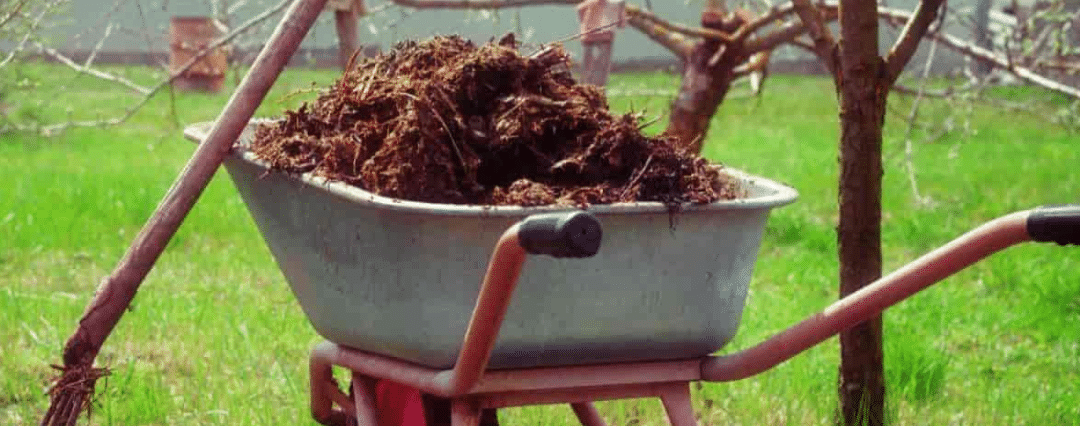Horse manure is often thought of as a garden superfood. However, some plants don’t thrive when fertilized with this nutrient-rich material. The high nitrogen and ammonia content can actually burn delicate plant roots and leaves. Acid-loving plants like azaleas, rhododendrons, and blueberries don’t appreciate the alkaline nature of horse manure.
Heavy feeders like corn and broccoli would rather have compost than straight manure. And compacted manure can become waterlogged, harming plant roots. While horse manure benefits many plants, it’s always wise to test it first on your unique growing conditions and crops. The healthiest gardens use a customized approach.
Decoding Plant Preferences: What Plants Don’t Like Horse Manure

Plant preferences can be as diverse as human tastes in food. While horse manure is a rich source of nutrients, it might only be suitable for some plants. Let’s unravel the reasons behind this and explore what makes certain plants turn away from this organic fertilizer.
The Nitrogen Conundrum
Nitrogen is a vital component for plant growth, but too much of it can be detrimental. Horse manure is known for its high nitrogen content. Plants that prefer a more balanced nitrogen ratio may find this excessive, leading to stunted growth or even damage. Striking the right nitrogen balance is crucial for the well-being of your green companions.
pH Levels and Sensitivity
The pH levels of horse manure can vary, and not all plants thrive in acidic or alkaline conditions. Some plants have specific pH preferences, and if horse manure disrupts this delicate balance, it can adversely affect their growth. Understanding the pH requirements of your plants is key to ensuring a harmonious coexistence with horse manure.
Seeds and Weeds
Horse manure, though nutrient-rich, may contain unwanted seeds and weeds. Some plants are more susceptible to the invasion of these undesirable elements. In such cases, using horse manure as a fertilizer can inadvertently introduce unwanted guests into your garden, competing for resources and hampering the growth of your cherished plants.
Sensitivity to Salinity
Certain plants are sensitive to salinity levels in the soil. Horse manure, if not properly composted, may contribute to an increase in salt content. Plants that are not adapted to such conditions may exhibit signs of distress, affecting their overall health. It’s crucial to monitor salinity levels and choose fertilizers accordingly.
The Plant Spectrum: Tailoring Fertilization to Individual Needs
Understanding the unique requirements of different plants is fundamental to successful gardening. Let’s delve into specific plant categories and explore why some of them might not be the best match for horse manure.
Delicate Blooms: Orchids and Azaleas
Orchids and azaleas are known for their delicate blooms and specific care needs. These plants, often grown for their ornamental value, might need to appreciate the robust nutrient profile of horse manure. Opting for specialized fertilizers designed for acid-loving plants can be a more suitable choice.
Leafy Greens: Spinach and Lettuce
Leafy greens, such as spinach and lettuce, thrive in well-balanced soil conditions. Horse manure, with its elevated nitrogen levels, might lead to excessive foliage growth at the expense of nutrient-dense leaves. Gardeners cultivating these greens may find alternatives with a more balanced nutrient composition.
Root Vegetables: Carrots and Radishes
Root vegetables, like carrots and radishes, rely on a stable environment for proper root development. Horse manure, if not properly composted, can create uneven soil conditions, hindering the growth of straight and healthy roots. Gardeners cultivating root vegetables may opt for fertilizers that promote steady root growth.
Sun-Loving Flowers: Marigolds and Petunias
Some flowering plants, like marigolds and petunias, thrive in full sunlight. Horse manure, if not appropriately integrated, may alter the soil structure, affecting water retention and drainage. For sun-loving flowers, choosing a fertilizer that enhances soil structure without compromising drainage is paramount.
Fruits and Berries: Strawberries and Tomatoes
Fruit-bearing plants, such as strawberries and tomatoes, require a balanced nutrient profile for optimal fruit development. Horse manure, while rich in nutrients, may need to provide a better balance for these plants. Gardeners cultivating fruits and berries may benefit from fertilizers tailored to the specific needs of fruit-bearing crops.
Fragrant Herbs: Basil and Rosemary
Herbs like basil and rosemary, valued for their aromatic leaves, may have distinct preferences when it comes to fertilization. Horse manure, with its potential for unwanted seeds and weeds, may not align with the meticulous care these herbs often require. Choosing a fertilizer tailored to herb cultivation can ensure robust growth and aromatic potency.
Striking the Balance: Best Practices for Fertilizing with Horse Manure
Now that we’ve explored why some plants may not favor horse manure, let’s delve into best practices for utilizing this organic fertilizer without compromising plant health.
Composting: The Key to Nutrient Balance
Composting horse manure before application is a crucial step in mitigating potential issues. This process not only reduces the risk of weed seeds but also helps balance the nitrogen content, making it more suitable for a broader range of plants. A well-composted horse manure can be a valuable asset to your gardening endeavors.
Soil Testing: Tailoring Fertilization to Your Garden
Conducting soil tests to understand the existing nutrient levels in your garden is indispensable. This allows you to make informed decisions about the type and quantity of fertilizer needed. Adjusting the application of horse manure based on soil test results ensures that your plants receive the nutrients they require without excess.
Mixing and Blending: Customizing for Plant Diversity
Every garden is a unique ecosystem with diverse plant species. Mixing horse manure with other organic amendments can create a customized blend that caters to the specific needs of your plants. This blending process helps create a well-rounded fertilizer, addressing the varied requirements of different plant varieties.
Observational Gardening: Responding to Plant Cues
Being attuned to your plants’ responses is a fundamental aspect of successful gardening. Observing how plants react to horse manure can guide your fertilization practices. If certain plants exhibit signs of distress, consider adjusting the type or amount of fertilizer used to create an optimal growing environment.
The Garden Landscape: Adapting to Plant Diversity
Gardening is an ever-evolving journey, and understanding the diverse preferences of plants contributes to a thriving landscape. Let’s continue our exploration of specific plants and their interactions with horse manure.
Climbing Vines: Grapes and Hops
Climbing vines, like grapes and hops, have unique nutrient requirements for robust growth. Horse manure, if properly composted, can be a valuable addition to the soil, providing the necessary nutrients for these climbing plants. However, monitoring soil pH and composition is essential to ensure optimal vine development.
Hardy Succulents: Aloe Vera and Jade Plant
Succulents, known for their resilience, may not necessarily thrive with the nutrient profile of horse manure. These hardy plants often prefer well-draining soil with minimal organic matter. Gardeners cultivating succulents may find alternative fertilizers that align with the arid conditions in which these plants naturally thrive.
Medicinal Herbs: Chamomile and Echinacea
Medicinal herbs, such as chamomile and echinacea, have specific requirements for potent therapeutic compounds. Horse manure, if carefully integrated and composted, can contribute to the nutrient profile conducive to the medicinal properties of these herbs. Balancing nutrient levels ensures the development of potent medicinal compounds.
Shade-Loving Ferns: Maidenhair and Boston Fern
Ferns, known for their love of shade, may have distinct preferences in terms of soil composition. While horse manure can provide valuable nutrients, it’s essential to monitor soil moisture and acidity levels for shade-loving ferns. Creating a well-shaded and nutrient-rich environment supports the lush growth of these foliage-centric plants.
Drought-Tolerant Plants: Lavender and Yucca
Drought-tolerant plants, like lavender and yucca, thrive in arid conditions. Horse manure, if used judiciously, can enhance the soil structure and nutrient content, supporting the resilience of these plants. However, maintaining a balance to prevent waterlogging is crucial for the well-being of these drought-tolerant species.
Ground Covers: Thyme and Creeping Jenny
Ground covers play a vital role in landscaping, offering a carpet of greenery. Horse manure, when appropriately composted, can provide the necessary nutrients for ground covers like thyme and creeping Jenny. Ensuring a well-aerated soil structure encourages the vigorous spread of these low-growing plants.
The Science Behind Fertilization: Nurturing Plants for Optimal Growth
As we navigate the intricate landscape of plant preferences, it’s essential to delve into the scientific aspects of fertilization. Let’s explore the role of nutrients, microbial activity, and soil health in promoting optimal plant growth.
Nutrient Trio: NPK Ratio Demystified
The NPK ratio, representing the levels of nitrogen (N), phosphorus (P), and potassium (K), is a fundamental aspect of fertilization. Horse manure, with its varying nutrient content, contributes to this trio. Understanding the specific nutrient needs of your plants allows you to choose fertilizers that align with their growth stages and requirements.
Microbial Harmony: Soil Health and Plant Vitality
A thriving garden is not just about nutrients; it’s also about the microbial community in the soil. Horse manure, when composted, introduces beneficial microorganisms that contribute to soil health. This microbial harmony enhances nutrient availability to plants, fostering a symbiotic relationship that promotes overall vitality.
Organic vs. Synthetic: Weighing the Fertilization Options
The choice between organic and synthetic fertilizers is a common dilemma for gardeners. Horse manure falls into the organic category, offering a natural and sustainable option. Understanding the pros and cons of both types of fertilizers empowers gardeners to make informed decisions based on their gardening philosophy and environmental considerations.
Soil Structure Matters: Aeration and Drainage
Beyond nutrients, the physical structure of the soil plays a crucial role in plant health. Horse manure, when properly integrated, improves soil aeration and drainage. This is particularly beneficial for plants that require well-draining conditions. A balanced soil structure ensures that plant roots have access to both nutrients and oxygen.
Harnessing the Power of Knowledge
Gardening is an art, and every gardener is an artist shaping their canvas of nature. Armed with the knowledge of what plants don’t like about horse manure, you can navigate the gardening landscape with confidence. Remember, each plant is unique, and tailoring your approach to their preferences ensures a garden that thrives in vibrant abundance.
Conclusion
while horse manure is a valuable and nutrient-rich fertilizer, understanding the intricacies of plant preferences is key to its successful use. By following best practices, observing plant cues, and adapting your fertilization approach, you can harness the power of horse manure to nurture a flourishing garden.






